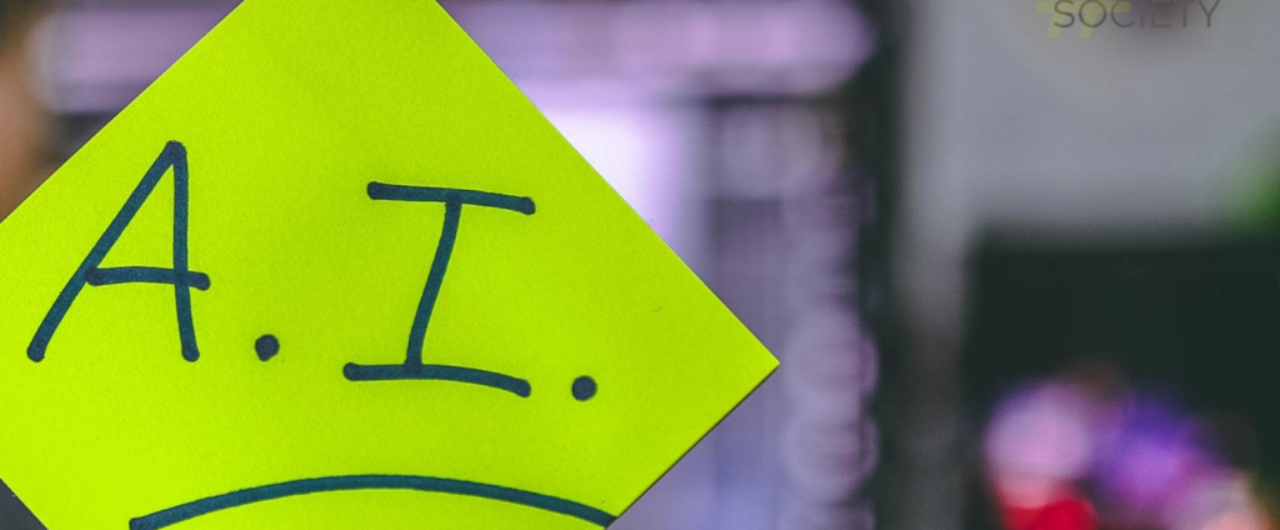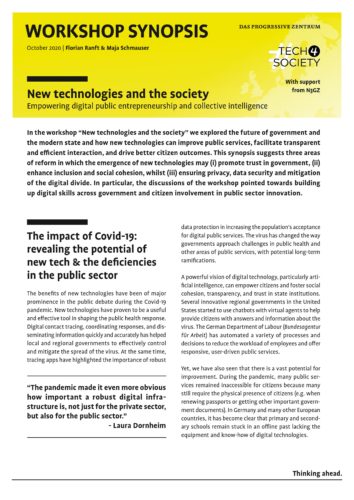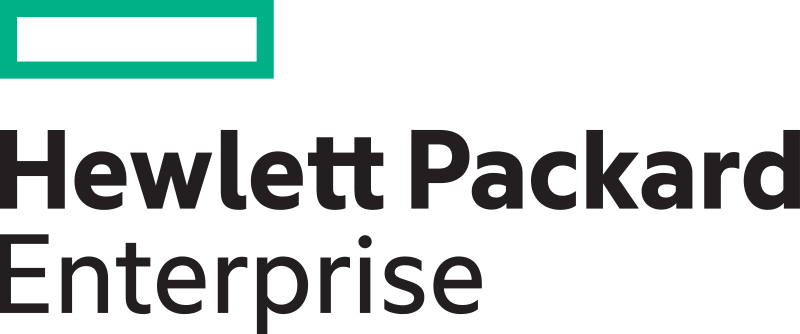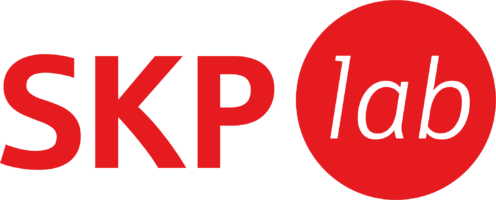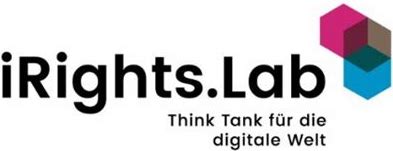In this workshop, we explored what the future of government and a modern state may look like and how new technologies can empower citizens to foster trust, transparency, and social cohesion.
The COVID-19 pandemic underlines how important a transparent, efficient, and trustworthy public sector is. Harnessing the innovation potential of new technologies in order to achieve economic and social progress and foster social cohesion belongs to the key challenges of our societies today.
The benefits of new technologies have been of major prominence in the public debate during the COVID-19 pandemic. New technologies have proven to be a useful and effective tool in shaping the public health response.
Digitalising public services help governments to meet increasing public expectation and to become more efficient and resilient – even in times of lockdown and social distancing.
Read our workshop synopsis for a concise summary of the workshop outcomes and policy recommendations.
The focus of this workshop was twofold. Firstly, there was scope for reforming public administration making it more efficient, inclusive and accessible for citizens – even in times of a lockdown and physical distancing. Secondly, and closely related, we addressed the question of how governance structures and public services can be designed to address the long-term challenges of social and economic transformation. The workshop agenda can be downloaded here.
How can new tech strengthen democratic structures and facilitate the social, economic and ecological transformation while fostering social cohesion and trust in democratic institutions?
The digital transformation is changing how people communicate and collaborate, and is thus enhancing citizens’ expectations towards public service efficiency. It impacts current job roles and drives the demand for a broader set of skills. To meet the complex requirements of the new world, an important building block is therefore digital skill acquisition and training for citizens, as well as for public servants.
Digital public entrepreneurs: How to meet the demands of a fast-changing society and economy?
Investing in the deployment of digital skills can boost growth and productivity in the private sector, but also improve public service delivery. In times of public service modernisation, governments at national and EU level are in the process of designing stimuli packages and public investments at an unprecedented scale. What we need are digital public entrepreneurs who seize the moment and design a “mission-orientated” state who steers the big digital and climate transformation and identifies opportunities for public investments.
How to create an environment for public innovation by harnessing collective intelligence?
During the COVID-19 pandemic, the “social economy” has played a major role in addressing and mitigating the impacts of the crisis. By providing innovative solutions aimed at strengthening public services and complementing government action, social economy actors have assisted the recovery from the crisis. Novel organising practices and methods such as Designathons, Hackathons and Bar Camps connect innovators, partners, and buyers to develop innovative solutions to societal questions. They not only produce viable and useful technical solutions, but also empower thousands of citizens to take action, learn, and create alongside others.
Watch the full event:
How to empower the public to innovate?
Digital public services can increase access to information, improve coordination between governmental services and citizens, and thus deliver lower transaction costs. This can increase the quality of life for citizens in particular those from low-income groups, the elderly, and those living in rural communities. However, governments need to reassure their citizens that they are safeguarding their personal data, provide efficient public services, and ensure digital improvements benefit vulnerable groups of society.
Our Speakers:



From left to right: Prof. Dr. Beth Simone Noveck (New Jersey’s Chief Innovation Officer, member of Germany’s Digital Council, director of the Governance Lab and author of “Smart Citizens, Smarter State”), Dr. Markus Richter (State Secretary at the Federal Ministry of the Interior, Building and Community and Federal Government Commissioner for Information Technology), Dr. Laura Sophie Dornheim (digital strategist and activist)
Further inputs by: Isabella Longo (Project Management Officer (Bit Habitat), Barcelona City Council) and Ossi Korhonen (Consultant, Demos Helsinki).
About #Tech4Society:
With the #Tech4Society innovation series, we seek to bring forward and explore the goal of promoting economic, social and ecological progress. The starting point of the conversations is the fundamental question of how new technologies can work best for societal progress. Further on, it takes into account the perspectives of the economy, the society, and the individual.
#Tech4Society seeks to address the long-term challenges of our societies, including economic and social consequences of the COVID-19 pandemic, the climate crisis, tomorrow’s work and economy, demographic changes, regional imbalances and the increasing political polarisation in democracies.
The premise of our co-innovative dialogue is to put new technologies at the service of people and society.
The #Tech4Society Consortium:

